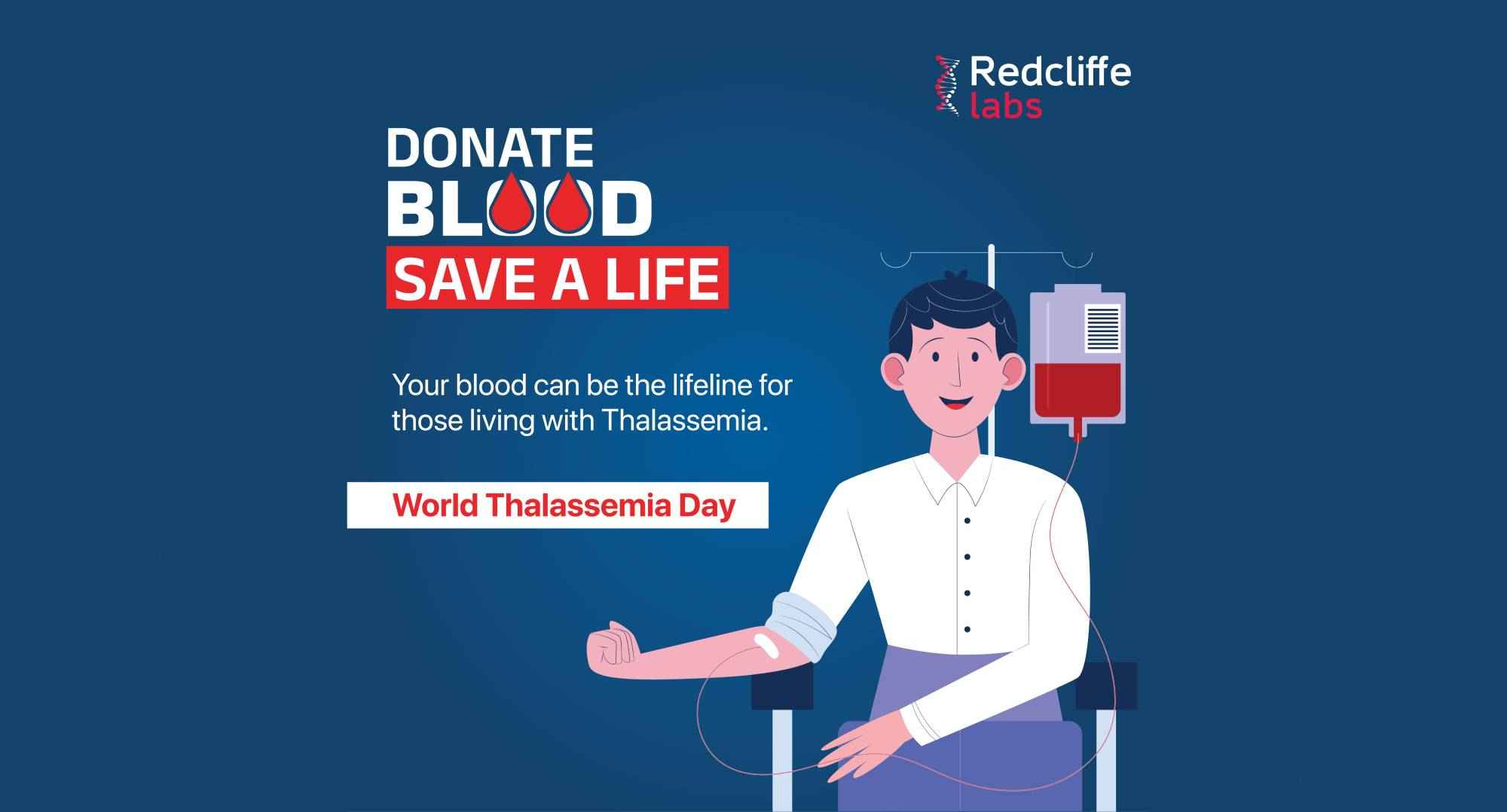World Thalassemia Day: Everything You Need To Know About Thalassemia

Medically Reviewed By
Dr Divya Rohra
Written By Meenakshi
on May 8, 2023
Last Edit Made By Meenakshi
on Jan 11, 2025

Be Aware. Share Care.
Thalassemia is a complex genetic blood disorder that can significantly impact individuals' well-being. It is a genetic blood disorder that disrupts the normal production of hemoglobin, the protein in RBCs responsible for carrying oxygen throughout the body. This abnormality can diminish the red blood cells in the body, leading to more complex health issues, like anemia and more. There is more about the disease that you should know to share care and awareness. Every year, World Thalassemia Day, is observed to increase awareness among people about this complex disease and its treatment options. And the theme of this year is “Be Aware, Share Care.” The message is to raise awareness about Thalassemia & its possible treatment options to make the condition manageable.
If you want to know more, scroll down to dig more. Here in this blog, we’ll cover every aspect of the disease, including symptoms, causes, the Thalassemia Test, and more. So, why wait, and what for? Let’s get started.
Major Causes Of Thalassemia:
Thalassemia is caused due to mutations in the genes for producing hemoglobin. It is an inherited disorder passed from parents to the children. If one or two parents carry the mutated genes, there is a high probability that the disease will be passed to their children. However, the severity depends on mutated genes and other factors.
Types Of Thalassemia:
There are mainly two types of Thalassemia, namely:
- Alpha Thalassemia: It is caused due to mutations in the genes responsible for controlling alpha-globin production. It is classified into different categories, each with varying severity.
- Beta Thalassemia: Another one is Beta Thalassemia, which is caused due to mutations in the genes controlling the production of beta-globin. It is again further classified into two subtypes.
It is essential to understand that Thalassemia affects individuals in different ways. The severity of symptoms varies from mild to life-threatening, depending on the type, number of mutated genes, and other factors. If you or anyone in your known is at risk, it is essential to take a proactive approach and get counseling from the experts.
Signs Of Thalassemia That We Need To Pay Attention To Are:
The symptoms of Thalassemia can vary from individual to individual, depending on the type of Thalassemia, the severity of the condition, and other factors. In some cases, there might be no symptoms at all, and in some, individuals may observe signs like:
- Anemia: Yes! It is the foremost sign that you need to watch out for. Thalassemia is a blood genetic disorder that can decrease the number of healthy red blood cells, leading to anemia and causing constant fatigue, pale skin, and difficulty breathing.
- Growth & Development Issues: Children with Thalassemia may experience problems like delayed puberty & slow bone growth.
- Bone Deformities: Another common sign that one may need to watch out for is bone marrow expansion, which indicates Thalassemia and can lead to bone deformities & osteoporosis.
- Jaundice: Individuals with Thalassemia may experience yellowing of the skin & eyes.
It is critical to understand that some individuals may experience no symptoms, or others may experience severe ones. Considering unusuality into account is essential for understanding the condition, diagnosing the problem early, and acting.
Now the question is how this blood disorder can be diagnosed. So, the answer is right here:
Diagnosis Of Thalassemia:
Thalassemia can be diagnosed through a blood test, measuring hemoglobin levels & other components in the blood. Genetic testing may also help identify the mutation responsible for causing Thalassemia. Depending on varied factors, your healthcare practitioner may suggest Thalassemia Profile Test or Thalasssemia Genetic Test. So, it is always good to consult and follow their guidance. Redcliffe Labs is the best diagnostic centre that you can consider to book a Thalassemia Profile Test at home for just Rs 1350. Get tested early to manage the disease and lead a healthy life.
In conclusion, Thalassemia is a medical condition requiring prompt diagnosis and treatment for better management. If you are planning to start a family & are at risk of carrying the Thalassemia gene, consulting with a healthcare practitioner is essential to determine your probability of passing the disorder to children. It is the only way to help individuals lead healthy & fulfilling lives.



